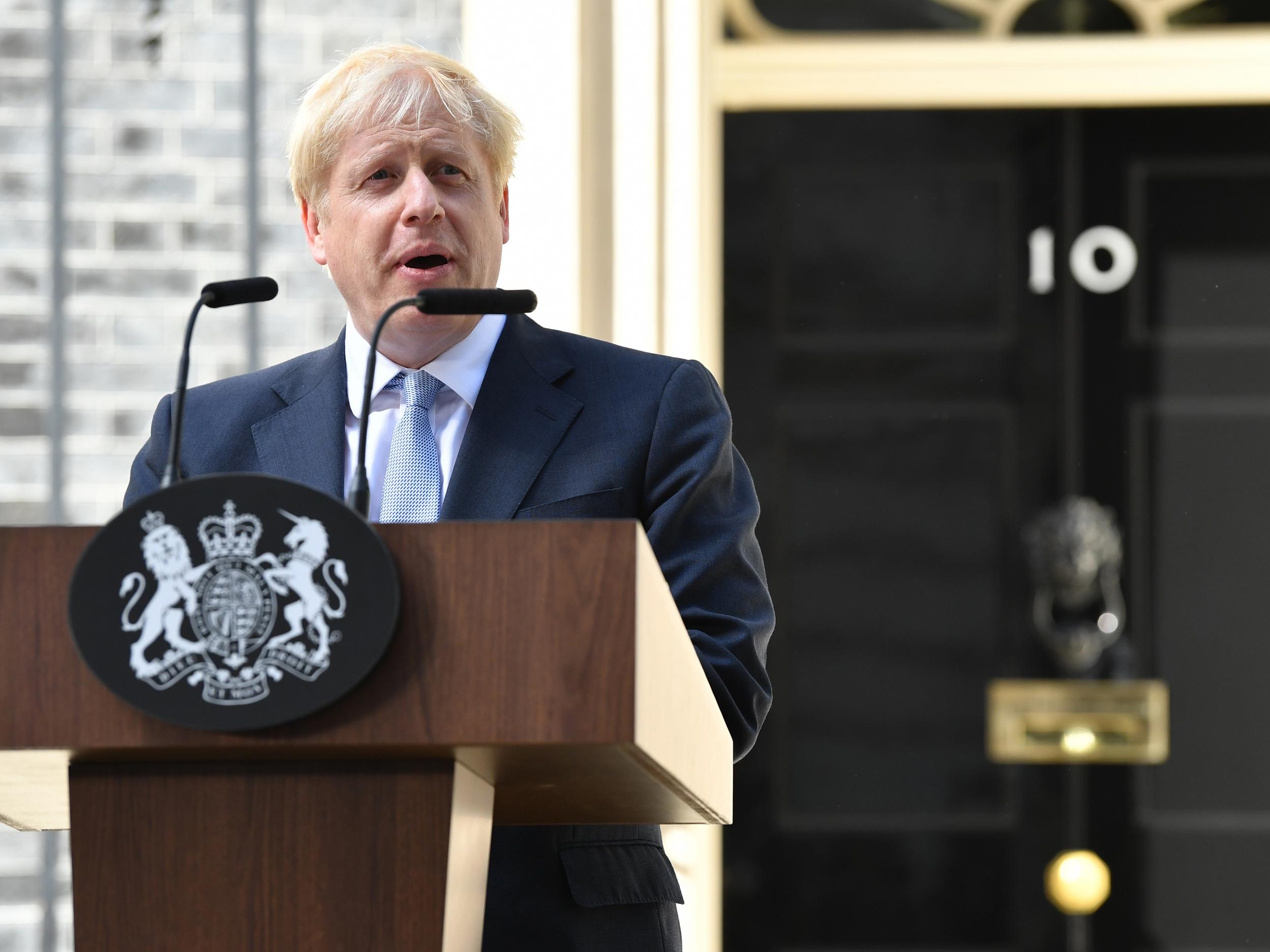Boris Johnson's first year in polling: From dizzying heights to damning lows
After dragging the numbers up from where Theresa May left them, the prime minister has let them plunge again

Your support helps us to tell the story
From reproductive rights to climate change to Big Tech, The Independent is on the ground when the story is developing. Whether it's investigating the financials of Elon Musk's pro-Trump PAC or producing our latest documentary, 'The A Word', which shines a light on the American women fighting for reproductive rights, we know how important it is to parse out the facts from the messaging.
At such a critical moment in US history, we need reporters on the ground. Your donation allows us to keep sending journalists to speak to both sides of the story.
The Independent is trusted by Americans across the entire political spectrum. And unlike many other quality news outlets, we choose not to lock Americans out of our reporting and analysis with paywalls. We believe quality journalism should be available to everyone, paid for by those who can afford it.
Your support makes all the difference.When Boris Johnson became prime minister on 24 July 2019, his party was languishing in the polls and had not long suffered its worst performance at the ballot box in more than a century, securing just 9 per cent of the vote in elections to the European Parliament.
Almost immediately, the Tories' poll share began to rise, from an average of 29 per cent in the week he took over to the mid-30s by the autumn, before hitting the low 40s at the start of the general election campaign.
After winning 45 per cent of votes on election day, Boris Johnson then led his party to even dizzier heights in the polls, until the Tories found themselves averaging as much as 52 per cent in the early weeks of the coronavirus crisis.
Then it all changed. From mid-May the polls have tracked downwards — not anywhere close to the lows seen last summer, but enough for the Tories' lead over Labour to drop to as little as four points.
Mr Johnson's honeymoon period as prime minister seems well and truly over.
Another way to assess his first year in Downing Street is to look at changes in the PM's approval rating.
The polling organisation YouGov found that 32 per cent of the public thought Boris Johnson was doing well in his early days as prime minister, roughly the same as those who thought he had got off to a bad start (31 per cent). One year on, the numbers are 44 per cent for doing well, 50 per cent for doing badly. The only time that his approval rating soared was during the early days of the lockdown, when the numbers briefly touched 66 per cent for doing well compared with 26 per cent for doing badly.
Separate figures from Opinium, another pollster, tell a similar story. Here, Boris Johnson's net approval rating - those who approve of his performance minus those who disapprove - hovered around 0 per cent for the first few months of his premiership, before jumping into positive territory after December's general election and peaking at the start of the lockdown.
But in recent months a change has taken place. Opinium produces approval ratings for other political leaders as well as the prime minister. And where once Mr Johnson enjoyed a solid lead over his Labour counterpart Jeremy Corbyn, even when his own rating was negative, now it is the prime minister who finds himself trailing his opposite number. The latest net approval ratings from Opinium put Boris Johnson on -4 per cent and opposition leader Sir Keir Starmer on 21 per cent.
Polls are snapshots of opinion, not predictions. The only set of numbers that will truly matter to Boris Johnson are those that will be decided on 2 May 2024. This is the date on which the next general election is due to take place.
By then, Mr Johnson will have been prime minister for 1,744 days: longer than Theresa May and Gordon Brown, but still shorter than the likes of David Cameron, Tony Blair and Margaret Thatcher. A second election victory would put Mr Johnson on course to match or even overtake some of his long-serving predecessors.
In clocking up one year in Downing Street, Mr Johnson can take satisfaction from having overtaken not one but two prime ministers in modern history who spent an even shorter time in the role: Andrew Bonar Law (211 days) and Alec Douglas-Home (364).
And he is also safely past a host of prime ministers from even further back in history, all of whom failed to last a single year at the top - including the shortest serving PM of them all, George Canning, who managed just 119 days before dying in office.
Press Association
Join our commenting forum
Join thought-provoking conversations, follow other Independent readers and see their replies
Comments